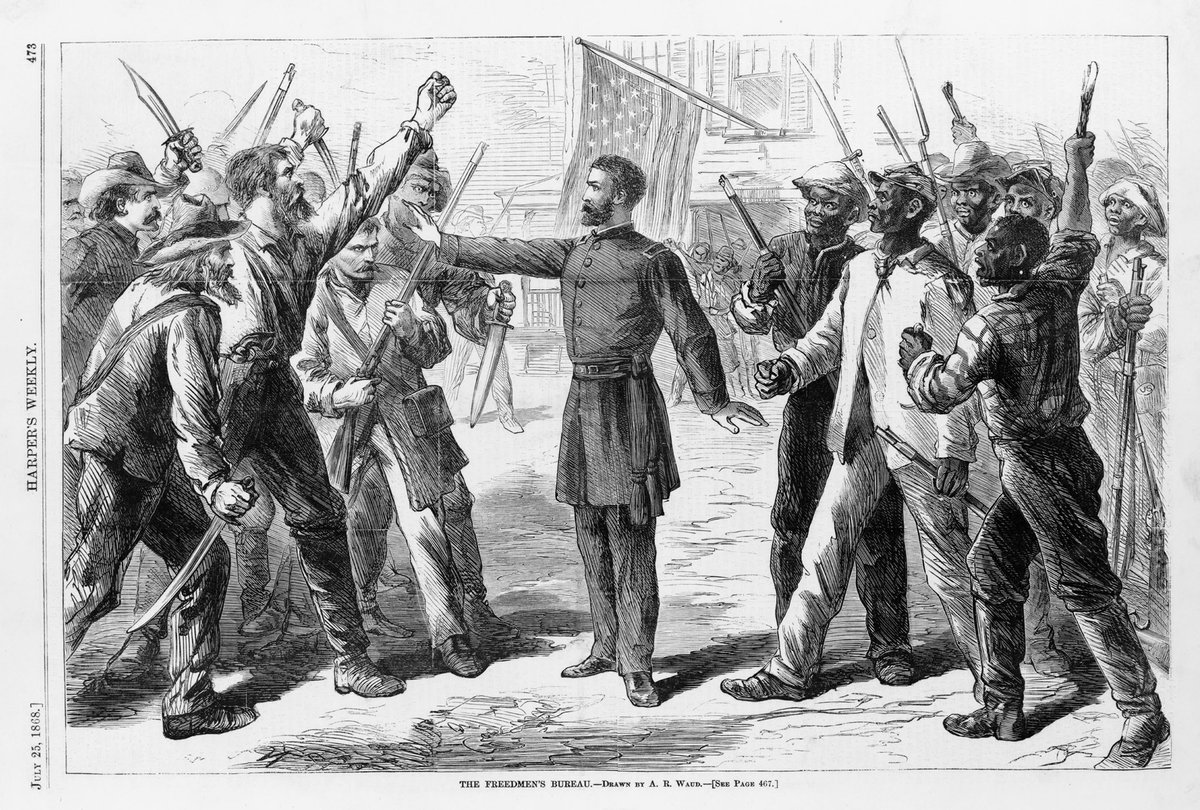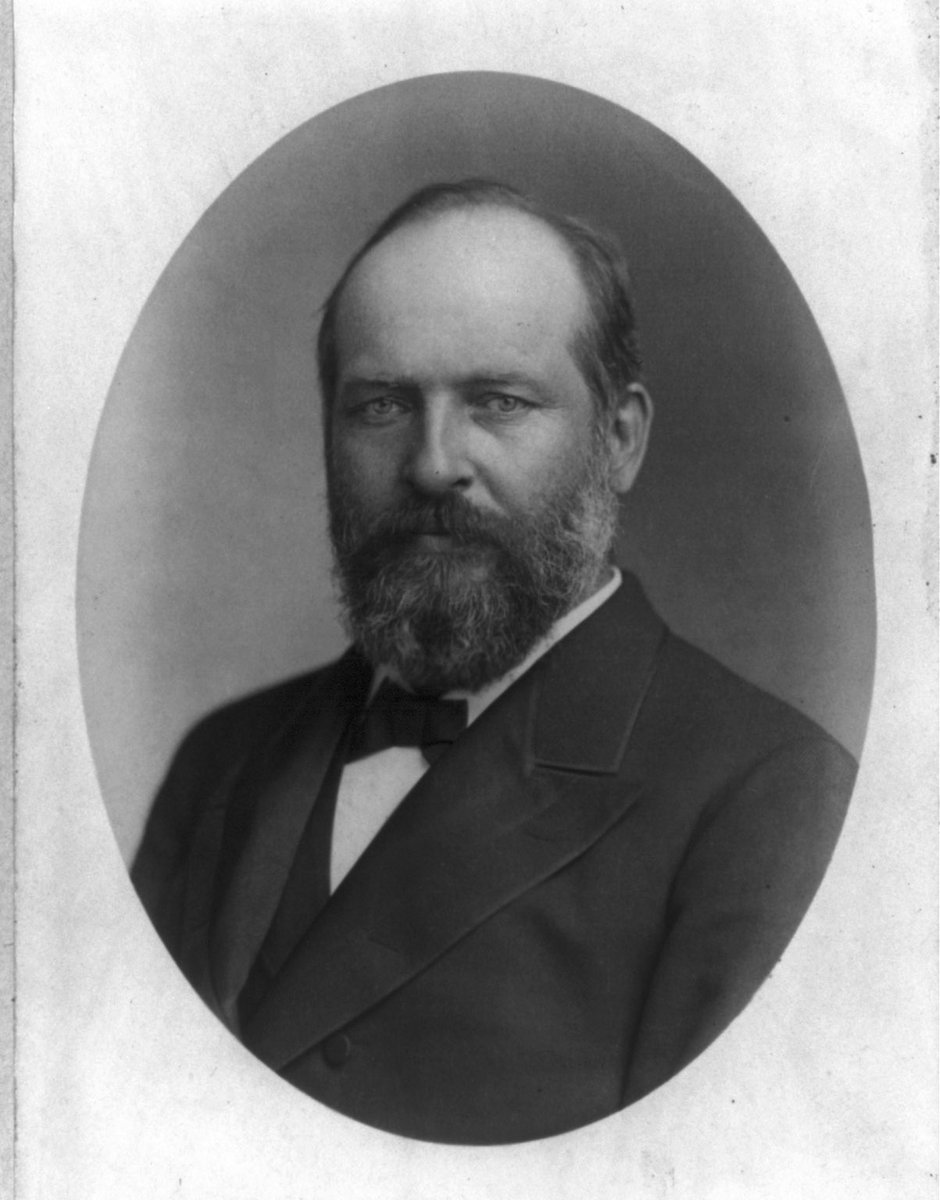
#OnThisDay June 30, 1872 the Bureau of Refugees, Freedmen, and Abandoned Lands, also known as the Freedmen’s Bureau, was effectively disbanded by an act of Congress. 

During its lifespan between 1865 and 1872, as stated by historian and civil rights activist W.E.B. Du Bois, the Bureau “set going a system of free labor...it secured the recognition of Black freemen before courts of law; it founded the free public school in the South.”
The Bureau embodied some of the hopes of Reconstruction during its existence, and the legacy of its successes can even be traced to prominent African American schools such as Howard and Fisk Universities, to name a few.
Still, with the Bureau dissolved, the fight for Black equality and civil rights in America would continue for generations.
Image: “The Freedmen’s Bureau” by Alfred Waud - Harper’s Weekly, July 25, 1868
(Library of Congress)
Image: “The Freedmen’s Bureau” by Alfred Waud - Harper’s Weekly, July 25, 1868
(Library of Congress)
• • •
Missing some Tweet in this thread? You can try to
force a refresh




